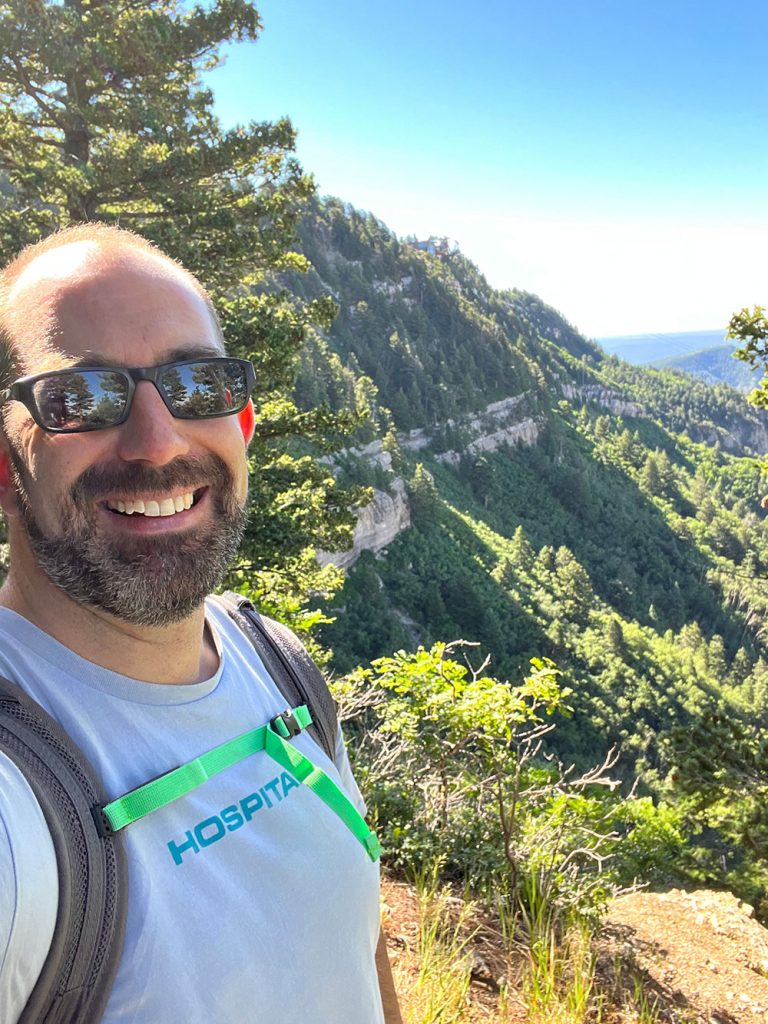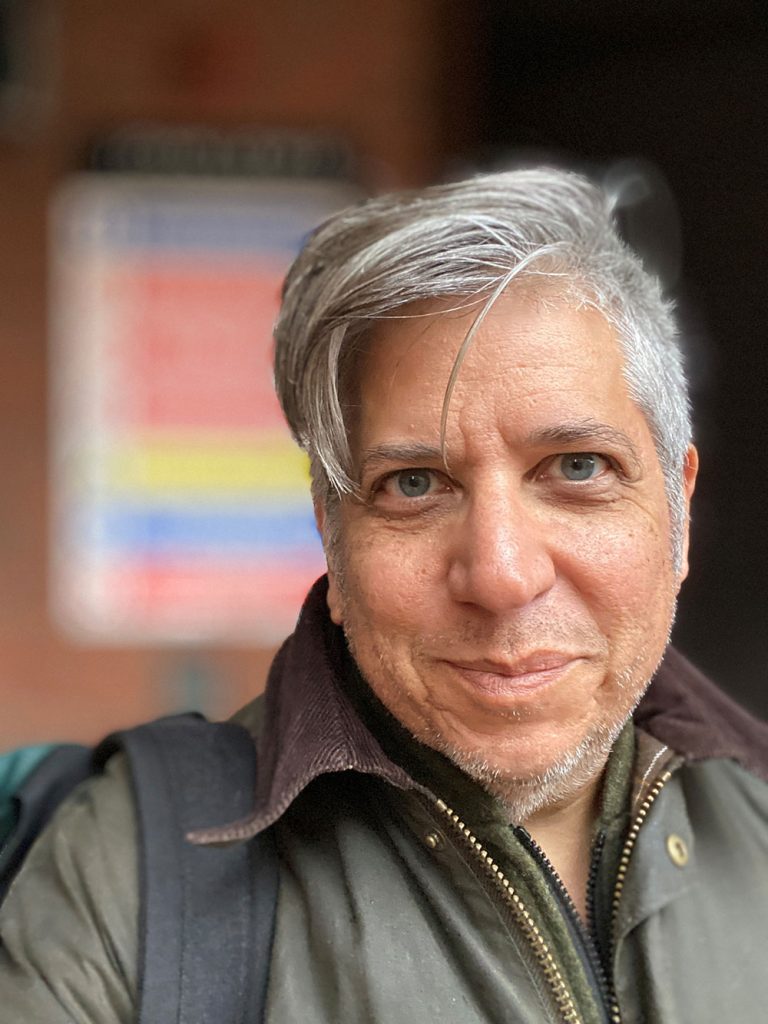Exchange assignments offer opportunity to share resources, knowledge

Since 1958, the United States and the United Kingdom have shared information, materials and equipment regarding atomic energy use within the provisions of the Mutual Defense Agreement. Through a codified strategic intent partnership, Sandia works with the U.K.’s Atomic Weapons Establishment to develop opportunities for collaboration.
One way to partner is through exchange assignments: Sandians working at the establishment and vice versa. This enables immersion and deep understanding of the respective organizational and engineering cultures. It also provides pathways to share knowledge via security provisions coordinated through Sandia’s International Programs Office.
Senior manager exchange
There are four main Sandia-AWE assignments, or secondments: senior management exchange, program specific, supporting a specific non-nuclear component and supporting component areas.
The senior manager exchange is coordinated through the Advanced Systems and Transformation center. Director Ernie Wilson has first-hand experience, having worked at AWE from 2017-2019. “It was an important milestone in my career,” he said. “The Sandia team there became like family and our AWE colleagues surrounded us with a sense of community. It meant a lot to me to help strengthen the partnership between the NNSA and the U.K.’s Ministry of Defence.”
A conversation with ‘cracking lads’
Sandia corporate communicator Jennifer Awe recently spoke with two senior managers living this mirrored experience. Steven Trujillo is a Sandia employee working at AWE, and David Gill is an AWE employee working at Sandia’s New Mexico site.

What inspired you to try a long-term, overseas assignment?
Steven: I had a positive experience doing an assignment in Washington, D.C., about 10 years ago. I was ready for a change and felt this was an opportunity to try something new, while remaining within Nuclear Deterrence. I knew I’d enjoy stewarding critical relationships between the sites. I’m also interested in organizational culture, and this is a chance to experience something different in that sense.
David: An assignment to the U.S. was on my bucket list because I wanted to experience living and working here. I shared my interest with managers over the years, and I was approached when we began planning for the return of our previous secondee. It was good timing, as I’d been in my group leader role four years and my family was supportive of the experience.
What initial differences have you observed between the sites?
Steven: The organizational charts here are very resource-based, a much more matrixed organization. They tend to group as resources rather than products. Also, space is completely different. AWE has open floorplans without walls. The building I’m in has centralized spaces where meetings are conducted. It’s very different but drives interaction to help move things forward.
David: The biggest difference is the individual office space for senior managers. I prefer the ad-hoc interactions of an open floorplan, so I leave my door open here and tend to walk the halls. I feel there is more social discussion with colleagues in the U.K. than in the U.S., where you tend to get down to business more quickly here.
How are you acclimating to a new country?
Steven: I’m getting a sense of this British sensibility for engineering. I’m internalizing and getting a crisper definition of what that is. It’s kind of a different ordering of performance characteristics and considerations. That’s the point of a long-term assignment, to allow yourself time to absorb.
David: I’ve embraced New Mexico. I love the culture and the outdoors. There’s no traffic compared to the U.K., and I can always find a parking spot. The food is awesome; I eat a lot of New Mexican.
So, red or green, Dave?
David: Green. I’m even making my own breakfast burritos!
What are the main benefits of assignments? What do you recommend as a first step if someone is interested in a future assignment?
David: There are major benefits in the training and development it provides our AWE staff to share different perspectives and contributions. These assignments take time and planning so we hope to have a pipeline. If you’re interested, be sure to discuss with your managers. I place high value on understanding the U.S. nuclear weapons complex and in understanding the policy, postures and history of nuclear weapons in this country. I’d like us to do more formal training for folks who will come to the U.S.
Steven: If you’re interested in an assignment, tell your manager and start discussing it with the important people in your life well ahead of any specific opportunity. The benefit of any assignment is learning alternative ways of thinking and doing in the nuclear weapons business and bringing that back to Sandia in the form of thought, relationships and skills.
How do you remain connected to your home team?
Steven: It can be challenging with a seven-hour time difference. It’s important to me to stay connected so when there are all-hands or team building, I try to join even if it means logging in after hours. I’ve also maintained the meetings and mentoring relationships I had while in New Mexico.
I travel back to New Mexico as needed and am getting better with the jet lag. I’ve had few weeks in the U.K. without hosting visiting Americans, whether fellow Sandians, NNSA partners or peers from other labs.
David: Early in the day is my time to catch up with U.K. peers, at the end of their day. I’ve been at AWE for 22 years so people from various fields whom I may not have worked closely with in the U.K. will reach out to me when they visit the U.S. The travel is not my favorite, and the jet lag can be hard.
Is there anything else you’d like to share about your role?
David: I’m working to identify additional collaborative opportunities between AWE and Sandia. I hope there will be even more partnering when I leave than when I arrived. If anyone wants peer review, a second opinion or advice on how we can partner, please reach out to me and I’d love to help.
Steven: I’m proud of the scope of collaborative work I see here, and it’s a privilege to grow my involvement with that portfolio. But the thing I really want people to know is that even things that seem simple, like dropping in on Sandia colleagues’ visits to AWE, require advance coordination and planning because of the governance around how the sites may interact. So, keep me in mind and let me know early if you’re coming for a visit.